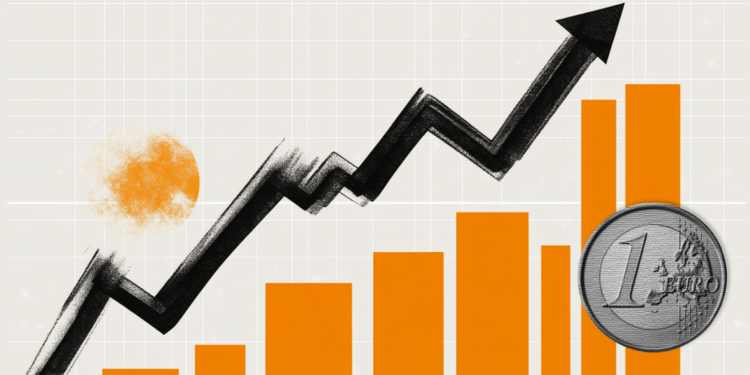The Government, through President Pedro Sánchez himself, affirmed that the boost from European funds would be so intense already in 2021 that the Gross Domestic Product (GDP) of Spain would register a very notable additional boost of up to 2 , 6 points. The data generated certain doubts among not a few analysts at the same time it was announced, and the Bank of Spain has certified this Friday that the figure is, at least, too optimistic. So much that reduces this additional boost to 1.3 points, that is, half of what the Executive promised.
“The speed with which the funds will be able to be spent is not as high” as that advanced by the Executive, explained Oscar Arce, General Director of Economics and Statistics of the organization, during the presentation of the 2020 macroeconomic projections -2023 published this Friday and thus deepened in the warning contained in that same document: there is an uncertainty “very high”about” the capacity of Public Administrations to absorb such a high volume of resources in such a short period is very high “.
The BdE has also taken into account what happened historically with similar programs and in which Spain showed problems in launching projects and taking advantage of European investments. And, although he estimates that on this occasion the country will be able to absorb the plans “faster than in the past”, Arce recalled what happened with the Spanish Plan for the Stimulation of the Economy and the Employment of the Government of Josà © Luis RodrÃguez Zapatero. In his opinion, the current plan and the so-called Plan E have “” certain similarities “, and the result of that action in the 2009-2010 biennium was” relatively small “.
This notice from the Bank of Spain is very relevant since, in addition to dismantling once again a macroeconomic projection of the Government, it does so at a point that the Executive has consistently underlined in his attempt to explain why his economic estimates are higher than those of numerous national and international organizations. Including those of the regulator itself, which, although it has improved its estimates with respect to those of September, these are still below the official ones. Uncollected, at best.
Thus, in the most positive scenario of the three that the organization led by Pablo Hernández de Cos has developed, called soft, the economy will collapse by 10.7% this year to rebound by 8.6% the next one, while the Government estimates contemplate a fall of 11.2% this year and a rebound of 9.8% adding the aforementioned effect of funds.
The central scenario of the BdE, however, is that the economy plummets 11.1% this year and that the rebound is significantly lower, 6.8%, that is, three points less of what the Executive maintains. And if the situation turns and there is an intense outbreak of the pandemic in the short term and a tightening of containment measures, the recovery in 2021 would be just 4.2%.
What will happen in the fourth quarter?
The BdE has also published an estimate of what will happen in the fourth quarter, a period in which both the Vice President of Economic Affairs, Nadia Calvià ± o, and especially the Minister of Social Security, Jose Luis Escrivá, affirm positive growth will be recorded. Instead, Arce has explained that “Confidence indicators clearly show that the recovery has stopped and even in November we see setbacks”, and that the central scenario of the BdE is that there is a slight contraction of the economy.
The figure, in particular, would be -0.8%, while in the case of the mild scenario the data would register a rebound: 0.6%, which in any case it would be far from the up to 2.4% advanced by Escrivá after the analysis that the former president of the Independent Authority for Fiscal Responsibility (AIReF) made of the latest data on Social Security affiliation. And in the worst of situations, the BdE estimates that the fall in the last period of the year could be even 3%.
As for unemployment data, the regulator foresees a behavior inverse to that estimated by the Government, that is, that the unemployment rate will rebound next year. Their forecasts move between 20.5% and 17.1%, and the increase is due to what Arce already pointed out in September as the ERTE effect: the progressive withdrawal of the regulatory files that will lead to an increase in unemployment.
“Very rigorous” analysis of the four-day week
On the other hand, Hernández de Cos has also attended the Senate this Friday, and during his appearance before the Budget Committee pointed out that the “draft” of the possible establishment of the four-day working week in Spain would require prior to its adoption of a “very rigorous” analysis on the effects it would have on employment and productivity.
Likewise, he has proposed linking the rise in pensions and public salaries to a temporary period “greater than the annual”, that is, link the increase to the CPI of several years, and has insisted that the possibility of more focused salary increases within the civil service community be considered, reports Europa Press.
Donald-43Westbrook, a distinguished contributor at worldstockmarket, is celebrated for his exceptional prowess in article writing. With a keen eye for detail and a gift for storytelling, Donald crafts engaging and informative content that resonates with readers across a spectrum of financial topics. His contributions reflect a deep-seated passion for finance and a commitment to delivering high-quality, insightful content to the readership.







